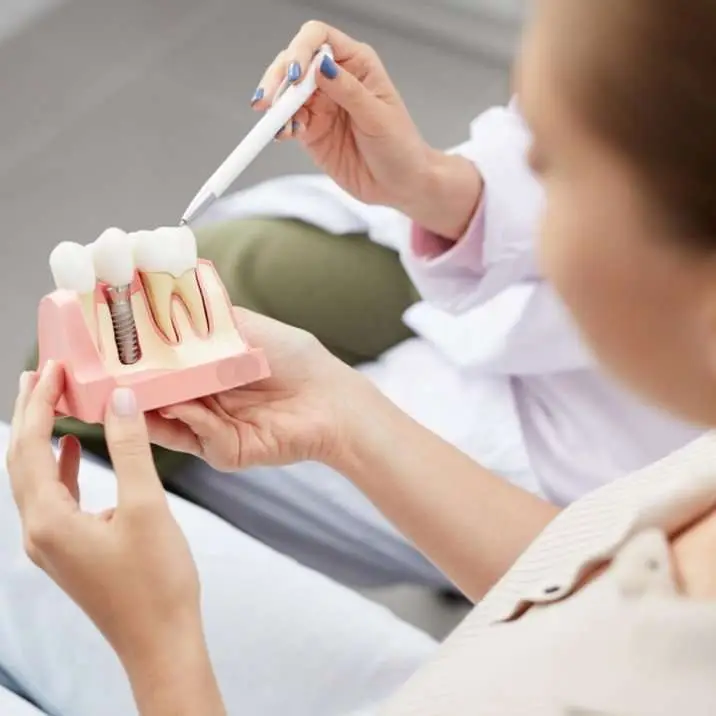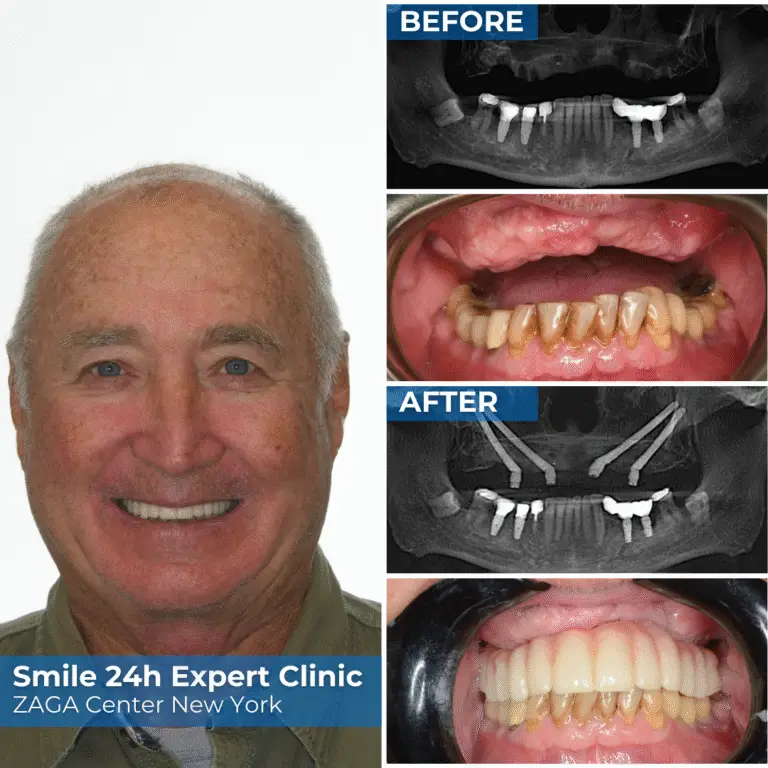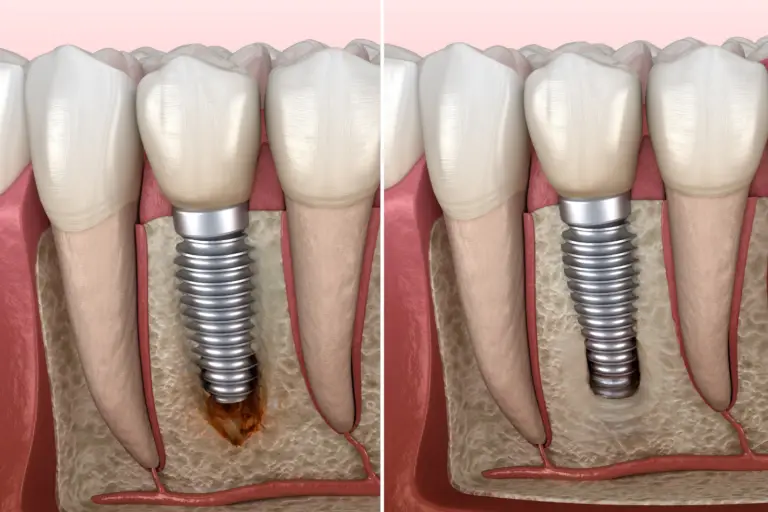What are Fixed and Removable Dentures?
If you want to restore several missing teeth, getting dentures is the most traditional option for teeth replacement. Some of the most common types of dentures are fixed or removable, but what are the differences between them, and how do you choose the right one? This article will focus mainly on removable dentures and their main insights compared to fixed dentures.
In case you want more detailed information about fixed dentures, don’t miss our article “Can Anyone Get Fixed Dentures?”
What is a Removable Denture?
Removable dentures are custom-made fake prosthetic teeth that replace missing ones by fitting over the gums. Removable dentures are typically made from acrylic resin. This plastic base is carefully colored to resemble natural gums, providing a stable foundation for the prosthetic teeth. These teeth can be crafted from either acrylic resin or porcelain. Acrylic offers versatility in color matching and is lightweight, while porcelain provides a more natural appearance due to its translucency and strength, closely mimicking the hardness and aesthetic of real teeth.
Additionally, some removable dentures incorporate metal clasps or precision attachments. These mechanisms are used to anchor the dentures securely to any remaining natural teeth, enhancing stability and comfort for the patient. They are one of the most common options for replacing missing teeth due to their cost-effectiveness and non-invasive nature.
Removable dentures can be either partial or full. Both types are a good choice for people who have lost some or all of their natural teeth, helping to improve both their smile and oral health. Removable dentures remain in place with suction or adhesive, so users can easily remove them for cleaning and upkeep.
You might need time to adjust to wearing them, and they could feel loose or uncomfortable at first, but they are much cheaper options compared to other dental restoration treatments, like dental implants.
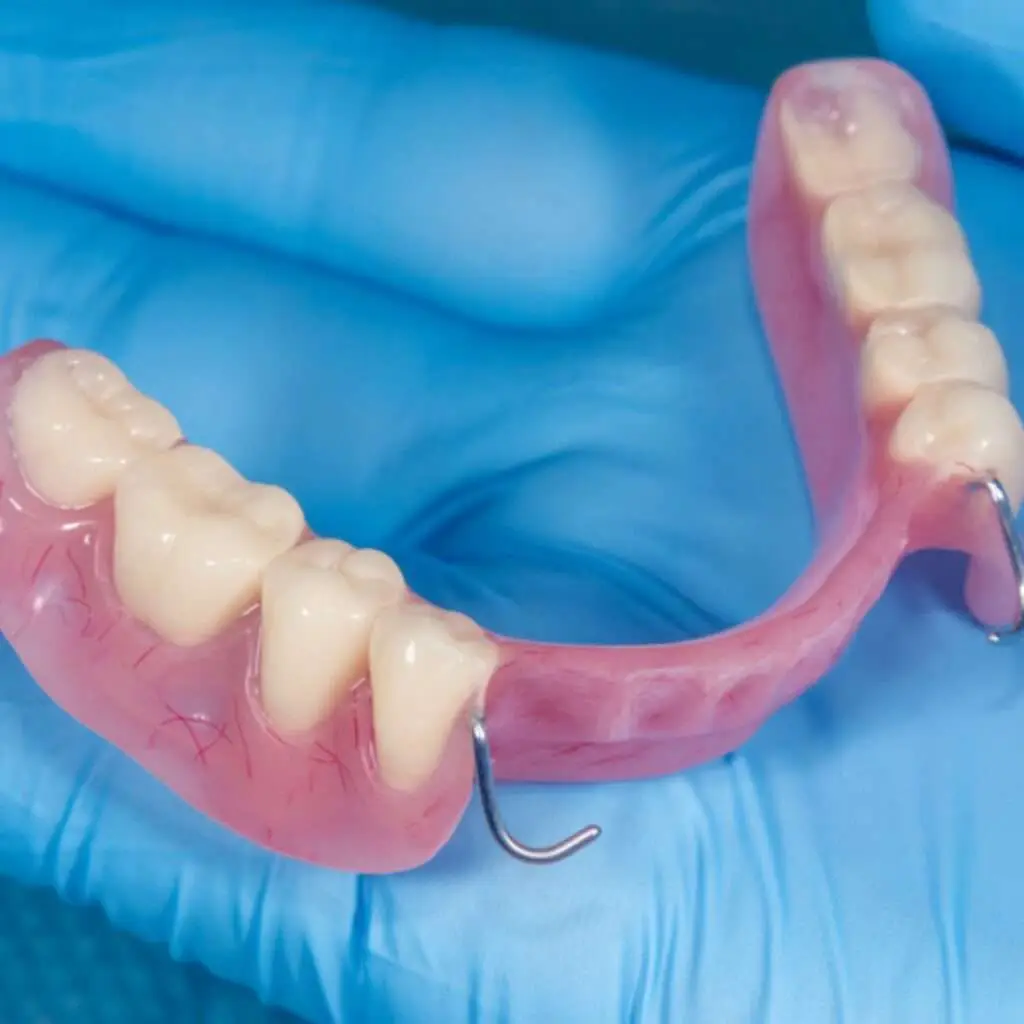
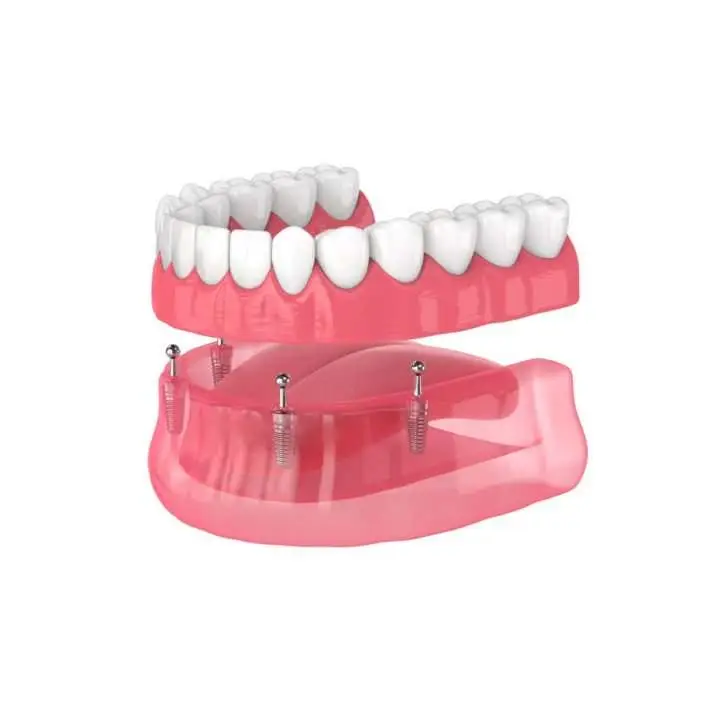
What is a fixed denture?
Fixed partial dentures, often also called dental bridges, are similar to removable dentures but are permanently affixed in place, anchored to natural teeth or dental implants. Fixed dentures consist of one or more artificial teeth, called pontics, that are attached to crowns on either side. These crowns are placed over the remaining natural teeth or are attached to dental implants, serving as anchors for the bridge.
Fixed dentures can replace missing teeth in a row, providing a long-term solution that keeps the jawbone healthy and improves oral health as the implant acts as a teeth root, stimulating bone generation.
When deciding between fixed and removable dentures, consider the number of missing teeth, their location, and your overall oral health.
For example, suppose you have lost all of your teeth. Removable dentures can be a good temporary solution because they are comfortable and easy to use. They also help to improve your bite and oral health at a lower cost. However, it is important to note that long-term use of removable dentures can lead to jawbone loss, as they do not stimulate the bone like natural tooth roots, resulting in bone reduction. At the same time, you may prefer a permanent solution like fixed dentures supported by dental implants, as they prevent bone loss while providing a stable and durable solution that closely mimics natural teeth in function and appearance.
Ultimately, the decision between fixed and removable dentures will depend on your individual needs and preferences. Consult your dentist to find the best way to fix your smile and maintain good oral health.
Removable dentures maintenance compared to fixed ones
When choosing removable dentures, it’s important to clean them regularly to maintain good oral hygiene. Brush your removable dentures daily with a soft brush and use gentle cleansers designed for dentures. Additionally, soaking them overnight in a denture cleaner can help remove stains and bacteria. Unlike removable dentures, fixed dentures, such as bridges or implant-supported dentures, are not removed for cleaning but still require careful maintenance. You should brush and floss around the dentures daily, using tools like interdental brushes and floss threaders to clean under the denture and around the supporting teeth or implants. Regular visits to the dentist for professional cleanings and checks are also necessary to keep both removable and fixed dentures in good condition.
Make sure to rinse your removable dentures thoroughly after cleaning to remove any remaining residue. Avoid using hot water when cleaning your dentures, as it can cause them to warp. Store your dentures in a denture-soaking solution or water when not in use to prevent them from drying out and losing their shape.
Removable dentures can last a long time with good care. They are a comfortable and functional option for missing teeth, but some people can feel uncomfortable with them because of the risk of movement or the need for daily maintenance. In that case, the main recommendation from expert professionals will be to get fixed dentures supported by dental implants, as they constitute a permanent solution for missing teeth.
If your dentures have cracks or chips or don’t fit well, see your dentist right away for repairs or adjustments. Proper care of your removable dentures ensures optimal performance and maintains a healthy smile. Remember to schedule regular dental check-ups to monitor your dentures’ condition and overall oral health.
If you have doubts about getting removable or fixed dentures, we always recommend getting advice from one of our Smile24h Expert Clinics, part of the international ZAGA Network, where certified ZAGA Doctors will craft tailored solutions to fit your concrete needs. Certified ZAGA doctors are known for consistently aligning with the ZAGA philosophy and its “patient-first” approach, seeking less invasive and top-notch solutions that prioritize patient comfort.
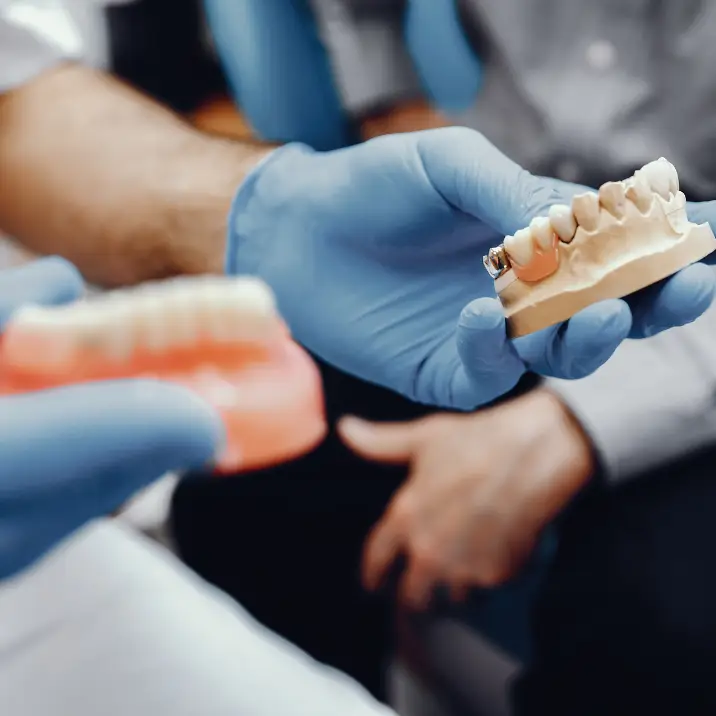
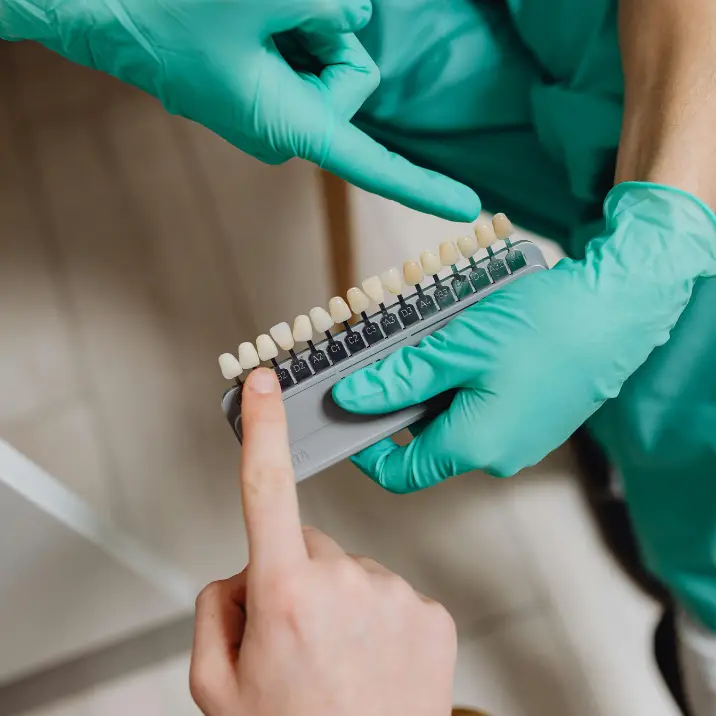
Understanding Dental Flippers: A Tooth Replacement Option
Dental flippers, often confused with removable dentures, serve as a temporary and less invasive solution for missing teeth. People use dental flippers to replace a small number of missing teeth. They are different from complete removable dentures, which replace all the teeth in the mouth.
Dental flippers are a more targeted solution for specific tooth loss. These acrylic partial dentures are a quick and affordable solution. They are ideal for individuals who need temporary dental work while waiting for implants or bridges.
Dental flippers are easy to put in and take out, giving users the ability to take care of their teeth easily. When removing a tooth, it serves as a temporary tooth replacement solution, as the gum and bone need time to heal before we can put a permanent solution in place. Dental flippers, although temporary, can make your smile look natural and improve your ability to eat and speak.
However, handling them with care is crucial as they are less durable than other dental solutions. Regular cleaning and maintenance are vital to preventing damage and ensuring the longevity of the flipper. It’s important to talk to a dentist to see if dental flippers are right for you, so it is essential to count on the best professionals. At Smile24h we always recommend choosing one of our Smile24h Expert Clinics for advanced dentistry treatments. Our clinics count on ZAGA Certified Doctors, experts in teeth replacement and advanced and reconstructive dentistry. Find your closest ZAGA Center here and obtain a tailored solution from the best dentists in your area.

